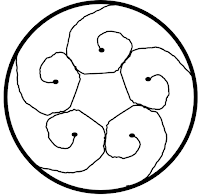The Anthropic Crystal World
by Sammy Castonguay, M.Sc. Geological Science

image: JOHN E. JAQUA ACADEMIC CENTER, goducks.com
The root anthro- refers to human. In the text I use to teach introductory geology, the definition of a mineral: natural, geologically formed crystalline solid with definable chemistry (Earth: Portrait of a Planet, Marshak p. 106). Thus, the natural sciences do not technically consider artificially formed crystals or substances as minerals. However, if you consider that artificial materials are derived from the Earth but rearranged to fit our needs (e.g. resources) we should include anthropogenic materials when thinking about minerals metaphysically. After all, metaphysics is inherently more subjective and includes the felt experience of human reality. Any given large building is composed of iron supports, concretes, and aggregates, decorated with panes of glass, drywall, and electrical wiring. Each of these resources has its derivation in Earths minerals and, just as each crystal, has a geologic formation epochs in the making. For instance, glass is made most often from ancient water-lain sands—tiny, rounded crystals of quartz, felspars, and other—processed, melted, then poured into desired shape. Much of the human processing has similarities to smelting and metallurgy, but the emplacement of the metals in rock is quite different. As an example, iron is most commonly extracted from Banded Iron Formations composed of iron-oxide mineral crystals. These spectacular rocks were deposited on the beds of ancient seas while biologically respirable oxygen (O2) was being emitted for the first time in Earths history by some of the first living creatures. The creatures were cyanobacteria that first harnessed photosynthesis and the time was, on average, two billion years ago (2,000,000,000 yrs ago).
The point here is to draw your attention to the crystals all around you that have been placed here by US. When we build cities, or just simple dwellings, the structures of our human built environment are accumulations of rearranged Earth materials. Ignoring this derivation or avoiding using artificial material because it is inherently impure may lead to metaphysical imbalance. If you actively work with crystals and accept those energies, you may consider working with the Anthropic Crystal World around us! Blessed Be!
 |
ThisMagickalEarth.com
Science. Spirit. Practice.
|
No comments:
Post a Comment